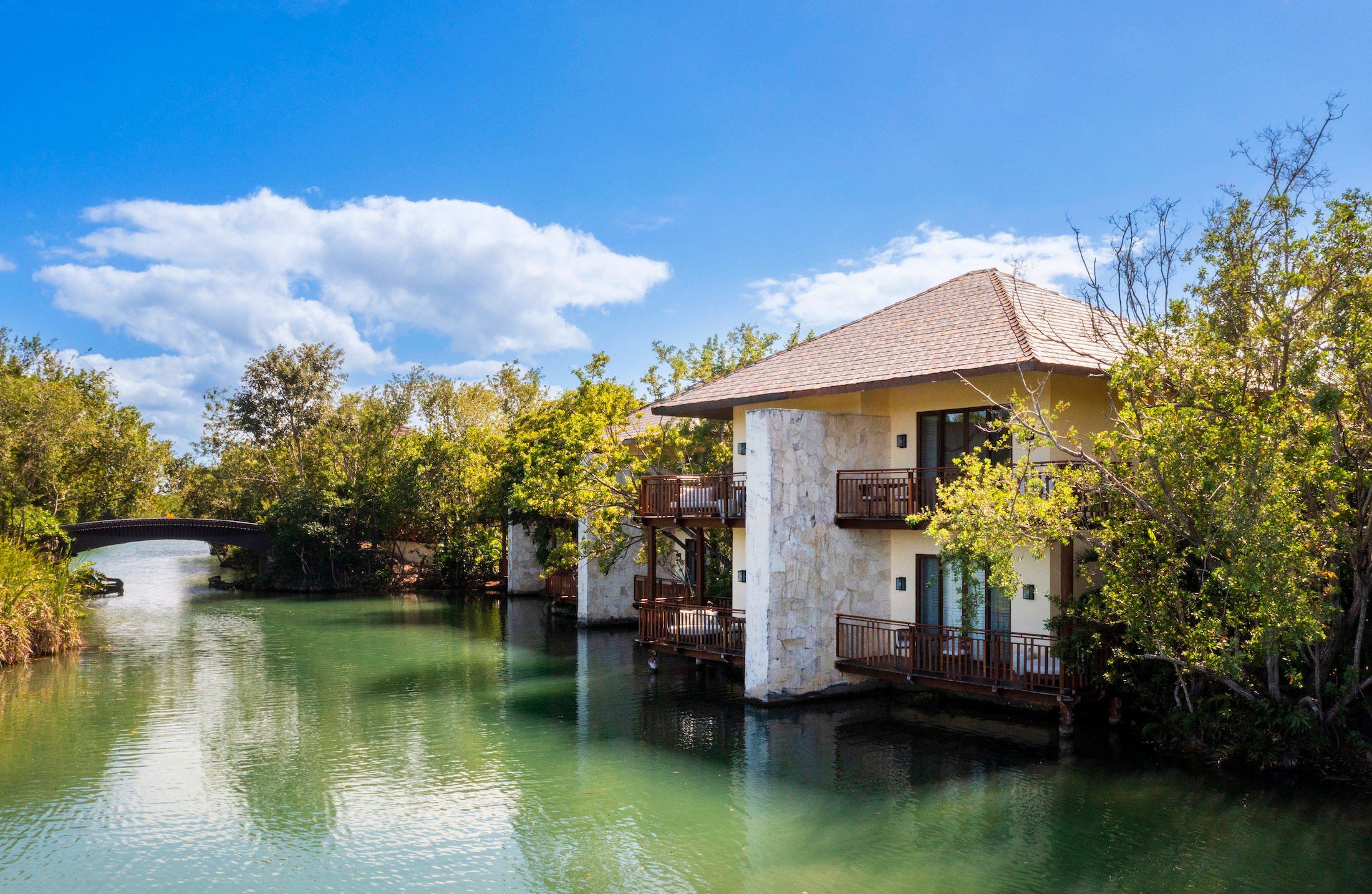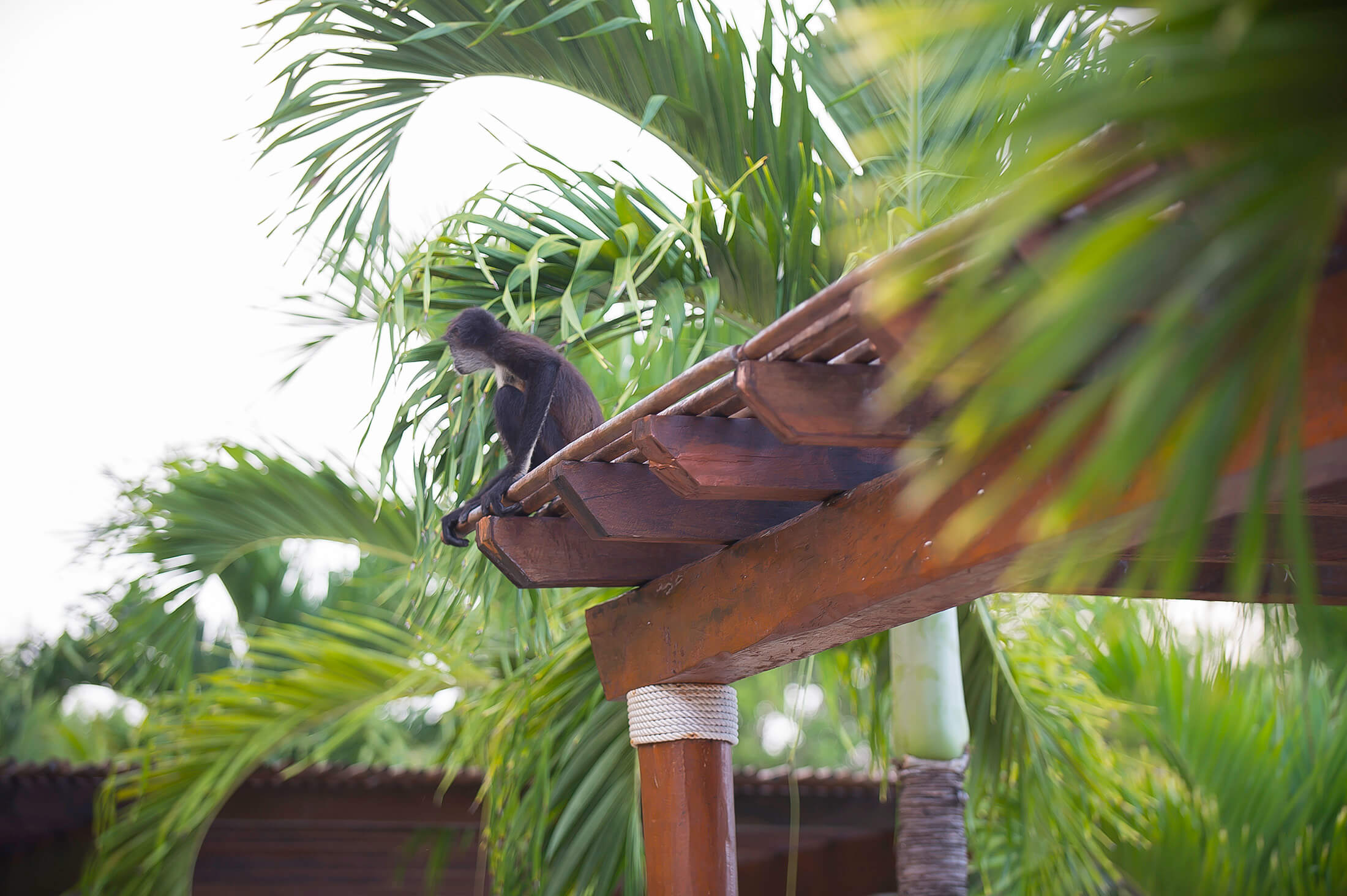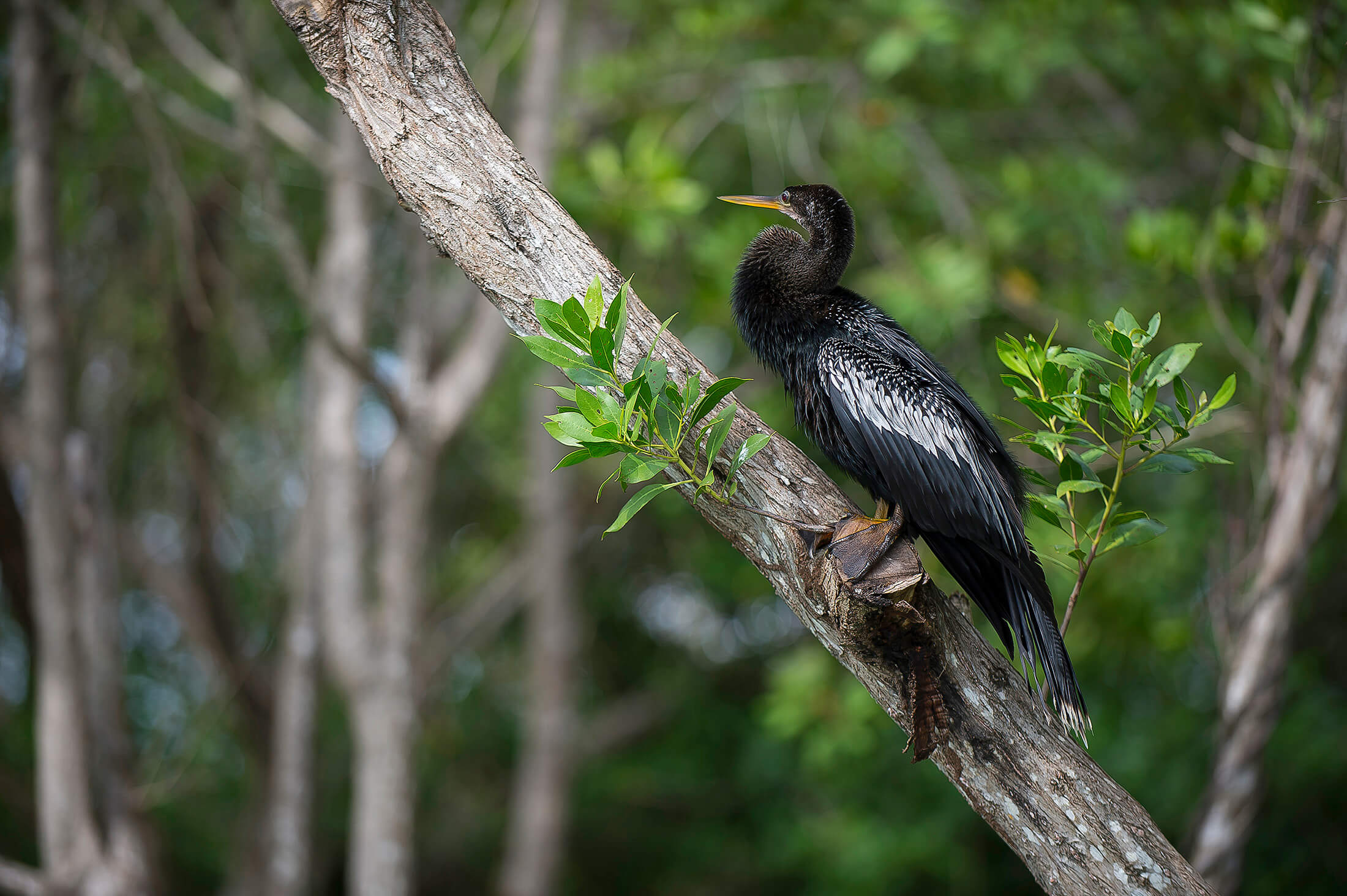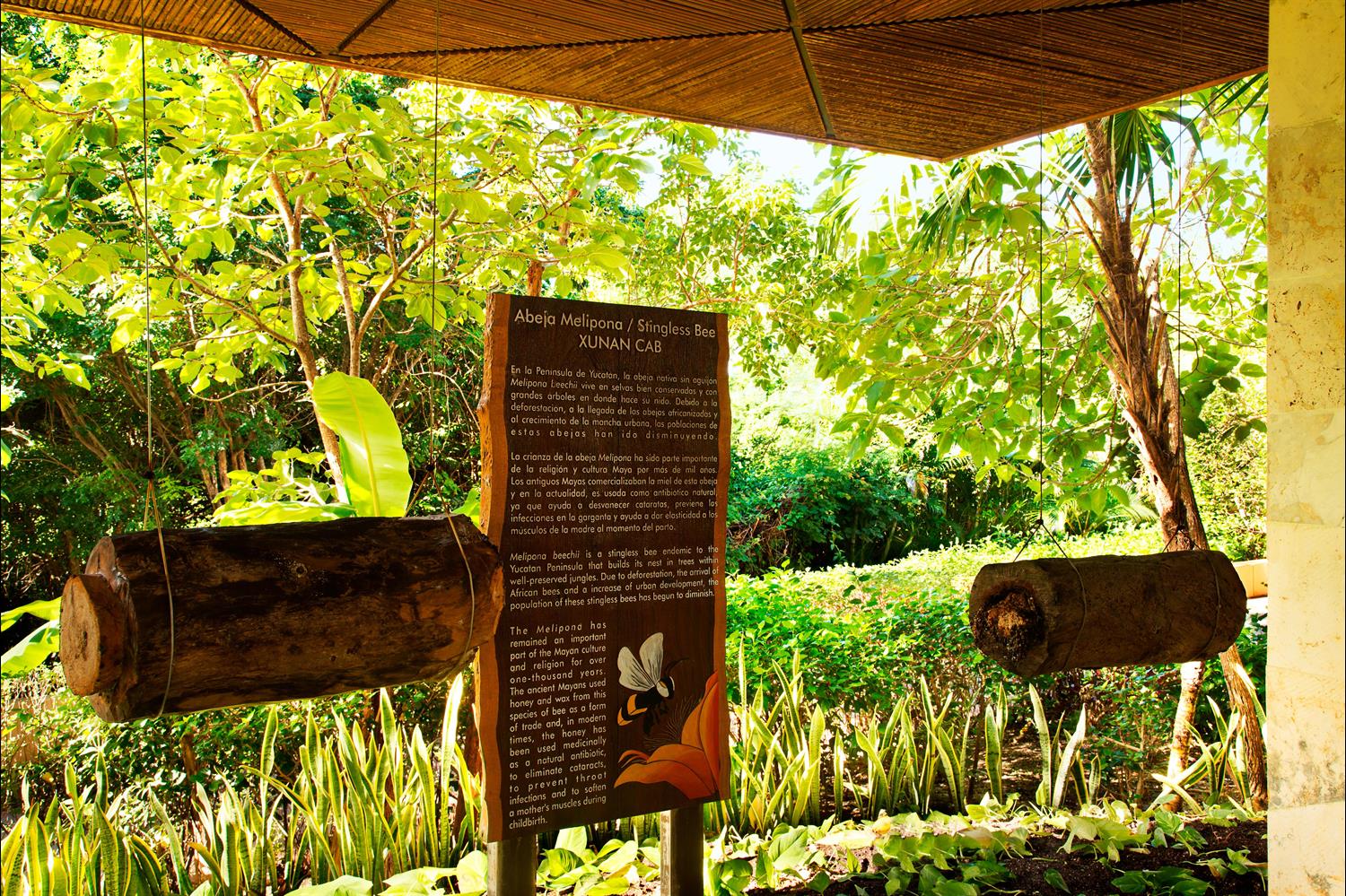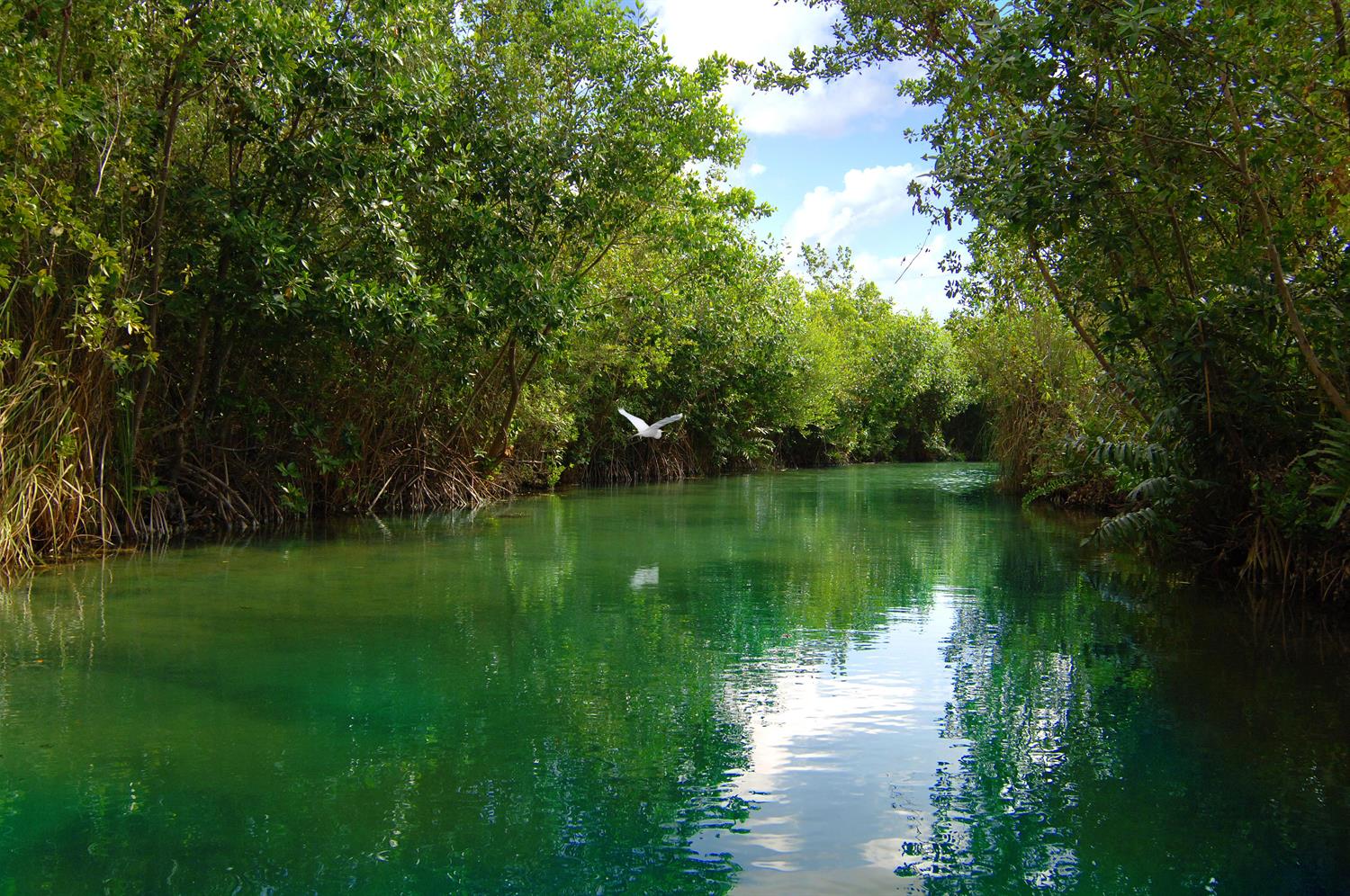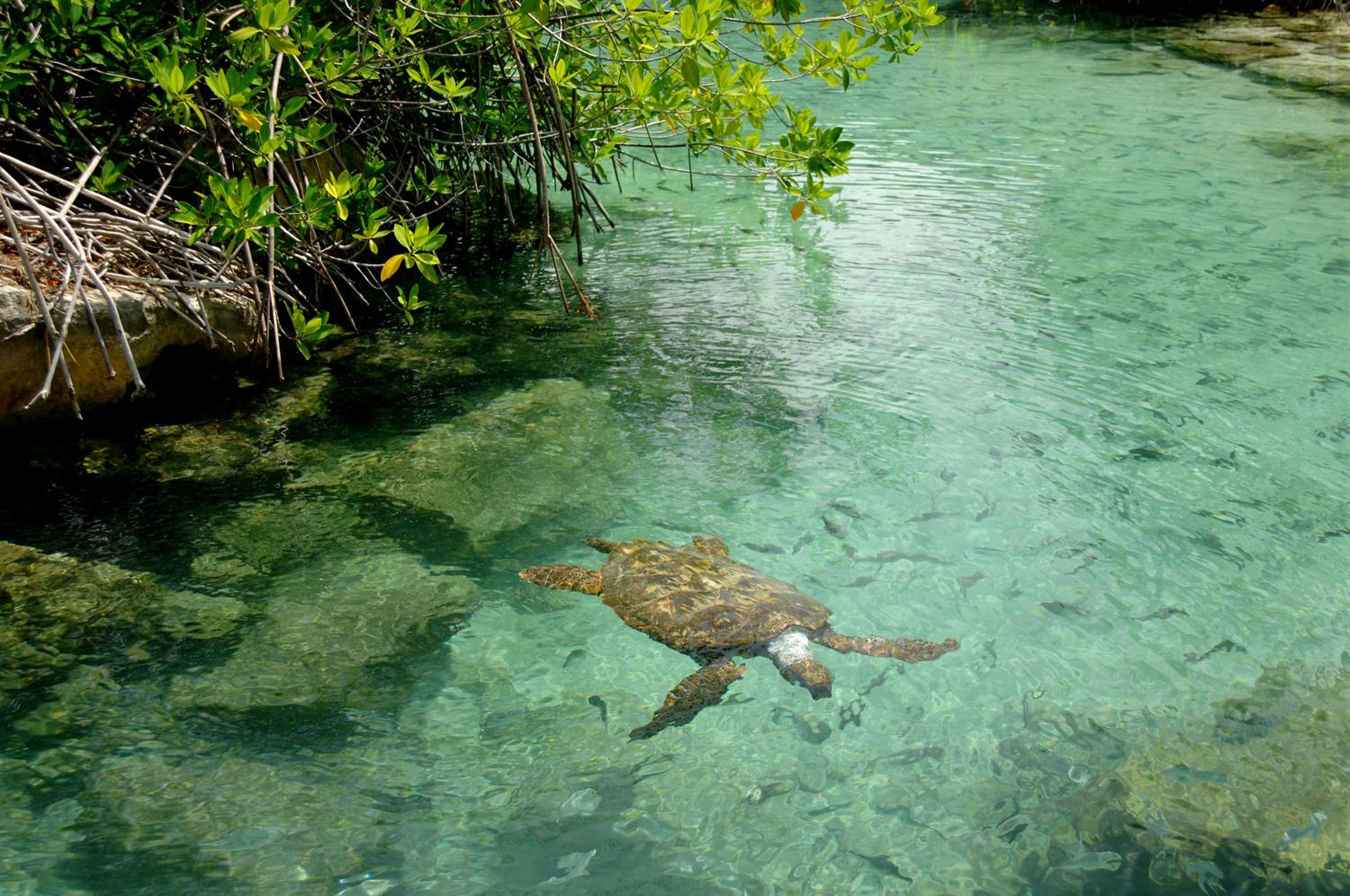Sustainable since its Construction
Fairmont Mayakoba’s unique design was developed with crucial consideration to our mangrove protection. These forests of the coastline are considered the “kidneys of our planet” as they are responsible for cleaning our ecosystem’s water. During its construction phase, Fairmont Mayakoba preserved most of the land’s natural jungles, flora and fauna. By implementing an ancient Mayan technique, called “Socoleo” (used to highlight the beauty of plants by pruning and replanting them) more than 1,500 trees were rescued and relocated all around the property. Today, those plants have grown and multiplied, and some are on the process of becoming mature trees.
Our Sustainability Initiatives
Fairmont Mayakoba is part of Accor Hotels, a hotel group with ambitious sustainability goals, based around strategic priorities such as working with our employees, involving our guests, innovating with our partners and working with local communities. ACCOR sustainability goals and guidance are taken to align our following strategic priorities:
- Employees – We act as an inclusive company for our employees
We are open and proud of our differences
We care about our employee’s well-being and balance
We raise awareness in our employees about the importance of ecological habits in their activities
We have a health, safety, and wellness committee for our employees, raising awareness about health and well-being at work
- Guests – We engage our guests in a sustainable experience
Eco-designed bed and amenities
Our grooming products respect the environment
In our boutique, you will find products that respect the environment and support communities
Our activities are carried out concerning our ecosystem
- Partners – We co-innovate with our partners to open up new horizons
We extend our social and environmental commitments to our partners
We involve them in our progress
We raise standards all along our value chains
- Buildings – Move towards carbon-neutral buildings
ACCOR Hotels has access to the most innovative and advanced technologies and work with world-leading researches to roll in the hotels
We evaluate and analyze the consumption of water and energy
We have a wastewater treatment plant. The treated water is recycled by watering the green areas
Paper, glass, cardboard, and plastic is classified and recycled
We recycle coffee capsules
- Food & Beverage – We strive for zero food waste and healthy sustainable food
Our menus are free of fish in danger
We have an urban garden
We have food products with external certification
Our food remains are donated to farms and converted into food and/or compost
We give preference to foods produced locally
You will find vegetarian dishes in our menus
- Communities – Work hand in hand with our local communities for a positive impact
We help non-profit institutions by donating our products
We promote fundraising initiatives
We establish close ties to support the local economy
- In every room, the bathroom is equipped with a low water consumption toilet and sinks that include an air regulator that increases the water pressure in order to save water.
- Guestroom bathrooms include low water consumption toilettes, saving at least three liters of water at a time, representing savings of 3000 liters daily*
- The air conditioning and lighting systems are controlled through software that enables the hotel to turn them on and off in specific areas, based on the hotel’s schedules and needs
- Air conditioning throughout the hotel is regulated through an energy-efficient software system that allows hotel staff to program air conditioning usage as necessary, depending on specific areas and time schedules when it is needed the most
- The property’s air conditioning system allows hotel staff to regulate a room or suite’s temperature when it is unoccupied, thus saving energy by 5%
- The hotel’s walkways are cleared with air pressure cleaning equipment, rather than water pressure cleaning
- The hotel’s sheet and towel program offers our guests the option to reuse these, instead of washing them on a daily basis, thus saving at least 180 liters of water per day (65,000 liters per year)*
- The hotel uses a treatment plant to process greywaters, which are later used as a source of irrigation for the property’s golf course and gardens. Additionally, the property’s mangroves serve as a natural treatment plant
* Please note: this information is based on a 90% occupancy rate.
- In the beautiful gardens of Fairmont Mayakoba you can find a great diversity of regional plants, as the property uses naturally growing vegetation off the Yucatan Peninsula jungle rather than flora from other areas. This way, the hotel helps maintain the balance of the region’s ecosystem
- In the property’s Turtle Garden, there are three different species of freshwater turtles: Mojina, Jicoteca and Casquito
- Fairmont Mayakoba is committed to assist wild flora and fauna live and grow in a safe environment, as close to their natural habitat as possible. The hotel’s staff cares for the animals, and provides them with secure nesting sites
- Fairmont Mayakoba’s gardens boast drought-tolerant plants that are native to the area. The plants help save water, as they are highly adaptable to the weather conditions of the area and do not require extensive irrigation or care
- Fairmont Mayakoba’s gardens include fruit trees that grow naturally, without the need for any fertilizers or chemicals
Fairmont Mayakoba’s gardens have several signs to inform guests about the native flora and fauna and biodiversity that can be found on-property.
- Reducing pesticide use by opting for organic or natural pest control – using other beneficial organisms to eliminate any pests that may damage the grounds. Additionally, pesticides are sprayed only when needed as a restorative measure, not on an ongoing basis
- Planting drought tolerant or indigenous species: Because the resort’s close proximity to the mangroves, only indigenous plant species are planted
- Water quality management: Fairmont Mayakoba conducts regular testing of its irrigation water and of the wells that feed the irrigation lake. It also limits irrigation waters’ runoff into the canals throughout the property
At Fairmont Mayakoba we keep trees that have died but are still standing, as these make a great home for small animals and birds.
Fairmont Mayakoba has a Waste Management Program where every staff member is responsible for separating the recyclable, non-recyclable and organic disposed materials on-property. We kindly invite you to join us in our preservation efforts and rid the planet of unnecessary waste.
- The hotel provides a special bin in guestrooms, to be used exclusively for the disposal of recyclable materials. Guests are encouraged to place all of the aluminum, plastic, paper and/or cardboard materials in this bin
- All of the hotel’s recycled materials are donated to local recycling facilities
- The cleaning products used in the hotel are biodegradable and environmentally-friendly
- 80% of our advertising is digital rather than print
- The hotel has a specially designated composting area to process all organic gardening materials
In an effort to minimize plastic waste, Fairmont Mayakoba has implemented a “straw upon request policy” replacing plastic straws with a biodegradable alternative
The Mayan vicinity of Quintana Roo is a richly historical area where Mayan descendants reside and provide continuation to one of the most important cultures in the world.
Fairmont Mayakoba offers products made by local Mayan artisans to support their families’ development, encourage proper use of natural resources, and strengthen knowledge of the Mayan culture.
Get to know more information about how to make your stay more sustainable by clicking here.
At Fairmont Mayakoba, we take sustainability as a priority. Click on our sustainability policy 2024 to learn more.
We are pleased to share with you our 2023 Results Report, of which we are very proud. Click on the 2023 Report to learn more.
Click here to know more about our Accessibility.
Get to know and compensate the carbon emissions generated from your stay by clicking on MyClimate‘s page.
Contact us
Get to know more about our sustainability, complete our form or contact [email protected]


